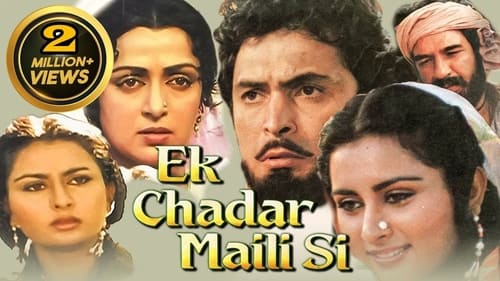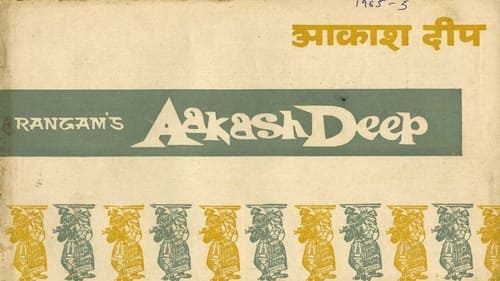
Screenplay
Rani gets into trouble after the death of her husband, Trilok. Her mother in law all the time curses her. Her family's crises worsens with the arrest of her brother in law, Mangal. Now she has to feed her family from nothing. Moreover she also has a social insecurity due to her husband's death. How will her family recover?

Screenplay
Oonche Log (Hindi: ऊँचे लोग, lit. High Society People) was a 1965 Hindi film directed by Phani Majumdar. It was based on play Major Chandrakant by noted Tamil film director-screenwriter, K. Balachander. The main character roles of this film were played by Ashok Kumar, Raaj Kumar and Feroz Khan. Its lyrics were composed by Majrooh Sultanpuri and the music was given by Chitragupta. The film was shot at Vauhini Studios, Chennai, was also noted as first big hit of newcomer Feroz Khan, who was noted for his sensitive performance against veterans like Raaj Kumar and Ashok Kumar. At the 13th National Film Awards it won the award for Second Best Feature Film in Hindi. It was later remade by K. Balachander himself as Major Chandrakanth (1966), starring J. Jayalalitha and Muthuraman.

Director
Oonche Log (Hindi: ऊँचे लोग, lit. High Society People) was a 1965 Hindi film directed by Phani Majumdar. It was based on play Major Chandrakant by noted Tamil film director-screenwriter, K. Balachander. The main character roles of this film were played by Ashok Kumar, Raaj Kumar and Feroz Khan. Its lyrics were composed by Majrooh Sultanpuri and the music was given by Chitragupta. The film was shot at Vauhini Studios, Chennai, was also noted as first big hit of newcomer Feroz Khan, who was noted for his sensitive performance against veterans like Raaj Kumar and Ashok Kumar. At the 13th National Film Awards it won the award for Second Best Feature Film in Hindi. It was later remade by K. Balachander himself as Major Chandrakanth (1966), starring J. Jayalalitha and Muthuraman.

Director
Shankar, who saw his poor father die a disappointed death, works very hard and goes on to become a mill owner. His brother Madhu, however, prefers to run their father's old tea stall.

Director
An unemployed young man named Deepak (Pradeep Kumar) saves Aarti Gupta (Meena Kumari), a hardworking and dedicated doctor, from drowning, and the two eventually fall in love with each other, although she is already engaged to Dr. Prakash (Ashok Kumar). Although Aarti's father firmly disapproves of this relationship, Deepak and Aarti marry. She moves in with him and his family, which includes his brother, Niranjan (Ramesh Deo), his sister-in-law, Jaswanti (Shashikala), their three children, and Deepak's father (Jagirdar). That leaves the humiliated Prakash determined to get Aarti back, whatever he may have to do. He manages to bring a discord in their marital life, so much so that Deepak asks Aarti to leave, and she returns home to her father. This is followed by Deepak having a serious accident, when Prakash is the only surgeon who can operate on him.

Director
Doctor is a Malay film which was published in Malaysia in 1958. The film Doctor issued in the form of black and white film without color. It was directed by Phani Majmudar in 1958.

Director
This story deals with the distinction and status of Singapore society when it is viewed differently depending on each other. But the story of a child named Samad change public perceptions of different social status. Samad a child who is looking for his sister Maimonides broken the news after his sister married and moved to Singapore. After finding her brother in Singapore, Samad independently find the money to reduce the burden of his brother who was divorced and became a dancer dance. Wahab often interfere with a criminal Maimonides in the workplace. Wahab made a pact with Hassan and Seman to kidnap the heir uncle uncle Hassan Baruddin own. Hassan intention, when it had no heir of his uncle he would be his successor. Heirs to the estate of Mr. Karim Baruddin is identical face with Samad, Just living standard differences that set them apart. What will happen to Karim and whether the kidnapping was linked with Samad?

Director
Film Kaseh Sayang is a a Malay film which was published in Malaysia in 1957. The film issued in the form of black and white film without color. After entrusting her baby girl Sukartini to the servant, Kartini leaves Singapore with her husband, Sudanto, to avoid the war. Halimah, the servant takes great care of the child despite her hardship and poverty. After the liberation of Singapore, Kartini returns to take her child back. Halimah is not willing to let go of Sukartini and runs away with her. She is caught eventually and sentenced to a year’s imprisonment. Though Sudanto and his wife win the child over, their hopes are shattered, as the child does not regard them as her parents.

Director
The movie tells us the story of Hassan who has great passion for music. Hassan and Ani fell in love and ran away to Singapore knowing that their marriage will never be approved by Ani's parents. Hassan soon made a name for himself as a musician and later as a composer. His compositions received great reviews. Hassan was overjoyed when he found out that his wife was pregnant but it soon turned to sorrow as Ani died giving birth to a son, Sazali. Hassan turned his affection towards Sazali and soon Sazali grew up into a rich spoilt kid. Sazali grew up to become one of Singapore's most wanted men. The police was tipped off when Sazali and his gang committed burglary. Sazali was shot but managed to escape and seek shelter in his father's home. What did Hassan do?

Director
Hang Tuah and his four sworn brothers, Hang Jebat, Hang Kasturi, Hang Lekir and Hang Lekiu, has pledged to protect the Sultan of Malacca. With their dedication, the five brothers rose quickly from the ranks, especially Hang Tuah whom has proven himself to be an able warrior and leader. When Hang Tuah managed to persuade Tun Teja to marry the Sultan of Malacca, the Sultan was overjoyed and rewarded Hang Tuah with full honours. The old guards felt threatened and envious, decided to frame him.

Director
A group of freedom-fighters face betrayal and go on the run from police in British-occupied Hindustan.

Director
Fed up of Dilip's involvement with gold digging actress Nayantara, Dilip's uncle pretends to be gravely ill in hopes of guilting him into marrying a decent girl. Dilip convinces reluctant Kiran to pretend to be his fiancée. Dilip and Kiran soon fall in love, and Nayantara decides to intervene.

Director
A stridently nationalistic story of India’s freedom struggle, presented through the experiences of a Bengali family from 1885, when the Indian National Congress was established, to 1947. Important events incorporated into the plot were Gandhi’s satyagraha (1920), the Simon Commission (1928), Vallabhbhai Patel’s Bardoli satyagraha (1928) and the 1942 Quit India agitations. Krishan Chander’s script, Sachin Shankar’s choreography and the acting styles owed much to the IPTA theatre of the 40s. The film, made at Bombay Talkies, was produced by the distributors of the Chicago Radio PA systems label. Kishore Kumar plays the militant hero of this quasi-documentary. Motwane included old documentary footage purchased from Kohinoor and Krishna Film, as well as a shot of Rabindranath Tagore singing his Jana Gana Mana composition, one of India’s national anthems (Arunkumar Roy’s Of Tagore and Cinema, 1994, traces this footage to Ufa, shot when Tagore visited Munich)

Director
An early example of social realism that reached its height with 'Udayer Pathey' and more memorably with 'Chhinnamul', 'Doctor' was meant as a stringent critique of practices that were beginning to be deemed as persistant evils that plague society, namely superstitions, religious dogma and discrimination on the basis of caste. However, that would be a far too simplistic reading of the multiple thematic elements that tie together the narrative of 'Doctor'. The idea of caste based discrimination, violence and upper-caste hypocrisy is placed alongside the notions of generational conflict in a father-son relationship and the idea of a ever-widening generation gap especially in the historical and socio-political context of the film.

Screenplay

Screenplay
A tenant attacks the villainous landlord Jawaharlal Choudhry, injures his son Priyalal and abducts his daughter-in-law Sandhya. Sandhya escapes unharmed to her relative, the engineer Praksh, but her father-in-law refuses to take her back, believing her to be 'damaged goods'. Sheltered by the kindly Promode, her husband eventually accepts her back although she feels torn between affection for her savior and her marital obligations.

Writer
Two street urchins dream of singing and making it big in the glamorous world of theatre in Calcutta.

Director
Two street urchins dream of singing and making it big in the glamorous world of theatre in Calcutta.















